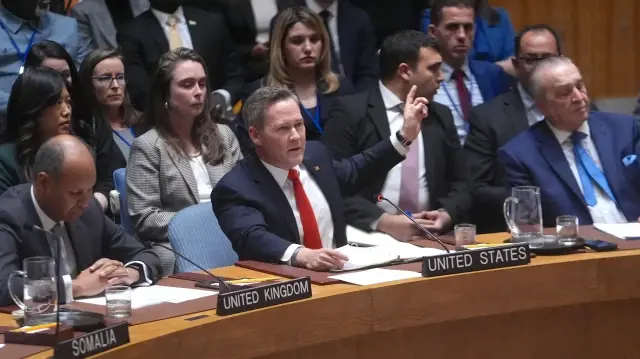UN Security Council approves new Gaza governance plan

The UN Security Council has passed a US-drafted resolution creating a Board of Peace and an International Stabilization Force for Gaza. The measure, approved with 13 votes and abstentions from China and Russia, aims to oversee the strip's governance and security until at least 2027, though it faced criticism for overlooking Palestinian sovereignty.
The UN Security Council has adopted a significant resolution establishing a new framework for governance and security in the Gaza Strip. The US-drafted plan, which passed with 13 votes in favor and abstentions from both China and Russia, authorizes the creation of a Board of Peace and an International Stabilization Force (ISF) to manage the territory's post-conflict transition.
The US Vision for Gaza
US envoy Mike Waltz presented the resolution as a "bold, pragmatic blueprint" derived from a broader US peace initiative. He outlined that the International Stabilization Force would be tasked with securing the environment, supporting the demilitarization of Gaza, and dismantling terrorist infrastructure. The Board of Peace, which the resolution indicates will be led by former US President Donald Trump, is envisioned as the cornerstone of the new governance structure, with its mandate currently authorized until December 31, 2027.
Russian and Chinese Objections
The resolution was met with significant criticism from the two abstaining powers. Russia's envoy, Vassily Nebenzia, argued the plan lacked clarity on transferring control to the Palestinians and drew a negative parallel to "colonial practices" and the British Mandate era, suggesting it ignored the will of the local population. China's representative, Fu Cong, echoed these concerns, stating the arrangement was "deeply worrisome" and failed to adequately reflect Palestinian sovereignty and ownership in its own future governance.
A Divided International Consensus
The passage of the resolution highlights a complex diplomatic landscape. The US acknowledged the backing of several key nations, including Qatar, Egypt, Saudi Arabia, and Türkiye, in forging the agreement. However, the strong objections from permanent Security Council members Russia and China, coupled with the plan's direct challenge to the current power dynamics in Gaza, point to the considerable challenges ahead in its implementation.
Reklam yükleniyor...
Reklam yükleniyor...







Comments you share on our site are a valuable resource for other users. Please be respectful of different opinions and other users. Avoid using rude, aggressive, derogatory, or discriminatory language.